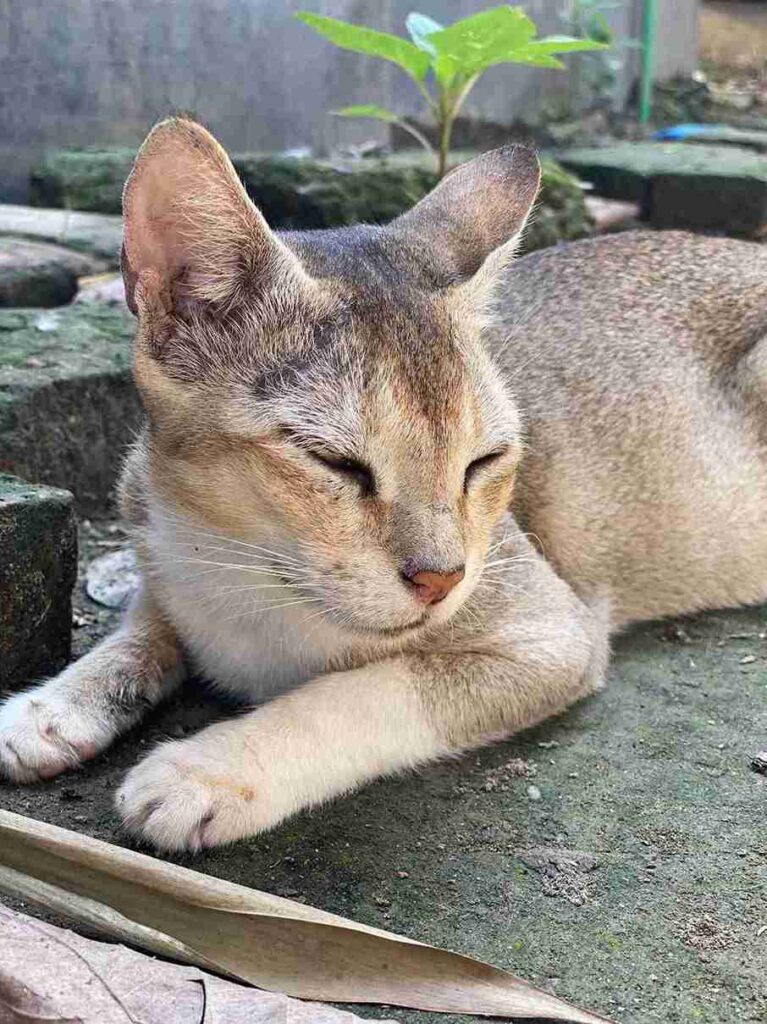Cats can have nightmares due to stress, anxiety, health issues, past trauma, fear, and environmental changes. Understanding the reasons behind bad dreams in cats can help you support their well-being and provide a comfortable environment for them.
Stress and anxiety can impact a cat’s mental state, leading to bad dreams. Similarly, health issues and past traumatic experiences can contribute to nightmares in cats. Changes in their environment, such as moving to a new home or experiencing loud noises, can also trigger bad dreams.
By recognizing these factors, you can take steps to minimize stress and create a soothing space for your feline companion.
Contents
The Nature Of Cat Dreams
Do cats experience nightmares? The nature of cat dreams has long been a topic of fascination. Research suggests that cats do indeed have dreams much like humans. Nightmares in cats may manifest in various ways, leading to behaviors such as twitching, meowing, or even running in their sleep. It’s believed that these dreams may be linked to their waking experiences and fears. While it’s challenging to determine the exact content of a cat’s dream, there are several factors that can contribute to bad dreams in cats.
Factors such as stress, anxiety, illness, and past trauma can all play a role in unsettling feline dreams. Additionally, changes in their environment or routine can also trigger negative dream experiences. Understanding these factors can help owners provide a comforting and stable environment for their feline friends, reducing the likelihood of distressing dreams. By recognizing the nature of cat dreams and the potential reasons behind bad dreams, cat owners can take steps to ensure their pets’ well-being and peaceful slumber.
Understanding Cat Behavior
Cats exhibit a range of emotions, and their behavior is a strong indicator of their emotional state. When stressed or experiencing trauma, cats may display unusual and concerning behaviors. These could include changes in eating or sleeping habits, increased vocalization, or withdrawal. Understanding how cats express their emotions is crucial in providing them with the support they need. In some cases, feline responses to trauma can manifest in what appears to be nightmares, often indicated by sudden movements, vocalization, or physical signs of distress during sleep. There are various reasons why cats might experience bad dreams, and recognizing these can help owners provide comfort and reassurance to their feline companions.
6 Reasons Behind Cats’ Bad Dreams
Cats may experience nightmares due to various reasons, including physical discomfort such as health issues or pain. Anxiety and stress can also contribute to their bad dreams. Additionally, fear of predators, past traumatic experiences, and genetic predispositions may result in unpleasant dreams for cats. Certain breeds may be more prone to experiencing nightmares due to their genetic makeup. Environmental factors, such as changes in living conditions or disruptions in their routine, can also impact a cat’s dream patterns. By considering these reasons, pet owners can better understand and address their cat’s dream-related behaviors.

Credit: www.quantamagazine.org
Frequently Asked Questions Of Do Cats Have Nightmares? 6 Reasons Behind Bad Dreams
Do Cats Have Nightmares?
Yes, cats can have nightmares just like humans. Their sleeping and brain patterns are similar to ours, and they can experience negative dreams.
What Can Cause Nightmares In Cats?
Various factors such as stress, anxiety, illness, or past trauma can lead to nightmares in cats. Changes in their environment or routine can also trigger bad dreams.
Should I Be Concerned If My Cat Has Nightmares?
It’s natural for cats to have occasional nightmares. However, if you notice frequent or intense episodes, it’s best to consult with a veterinarian to rule out any underlying health issues.
Conclusion
In sum, understanding cats’ nightmares helps build a stronger relationship with our feline friends. By acknowledging their potential distress, we can provide comfort and support. Recognizing signs of bad dreams and addressing potential triggers can contribute to a happier and healthier cat.
Stay attentive and empathetic to foster a peaceful environment for your furry companion.
Katie Lindsey is a passionate cat lover and founder of Cats Solution, a comprehensive resource for all things feline. With a lifelong love for cats and extensive knowledge in their care and behavior, she provides expert advice and solutions to cat owners. Through her website, Katie fosters a supportive community where cat enthusiasts can find guidance and heartwarming stories. A dedicated advocate for animal welfare, Katie also promotes responsible pet ownership and adoption. Join her on this purr-fect journey celebrating the joy of feline companionship.



